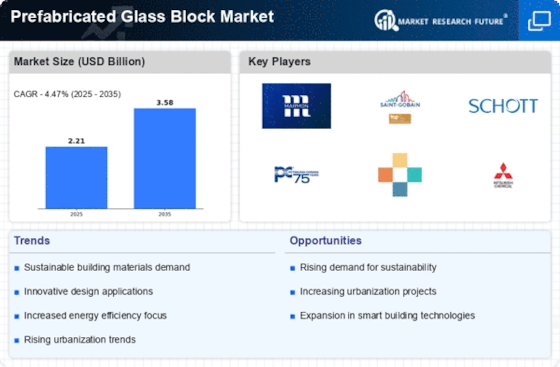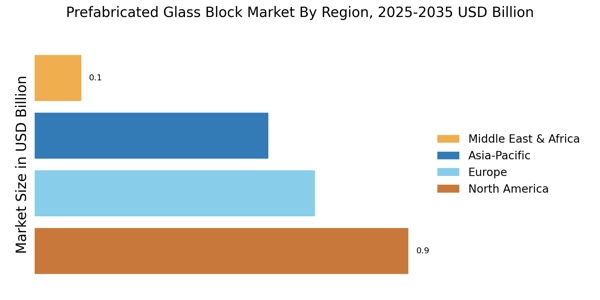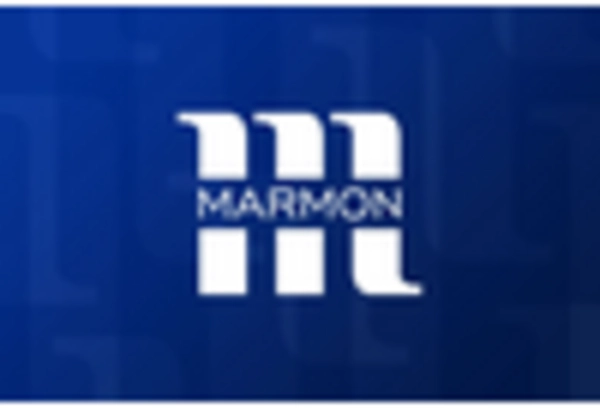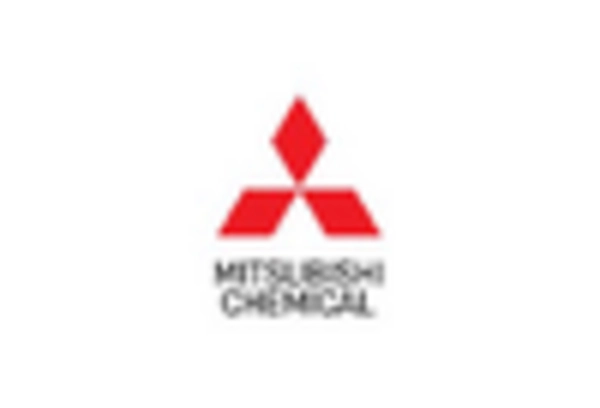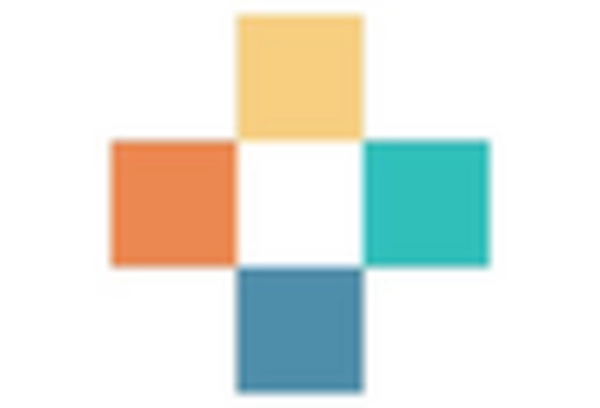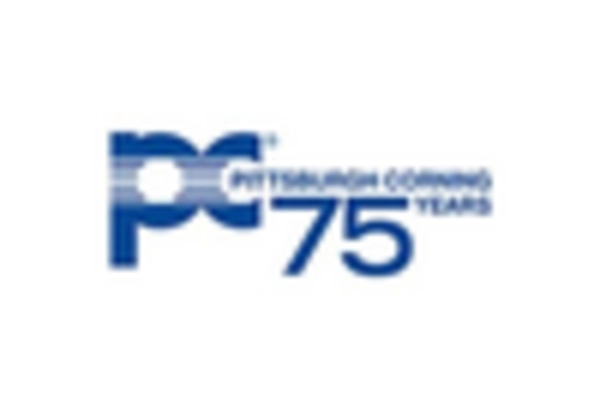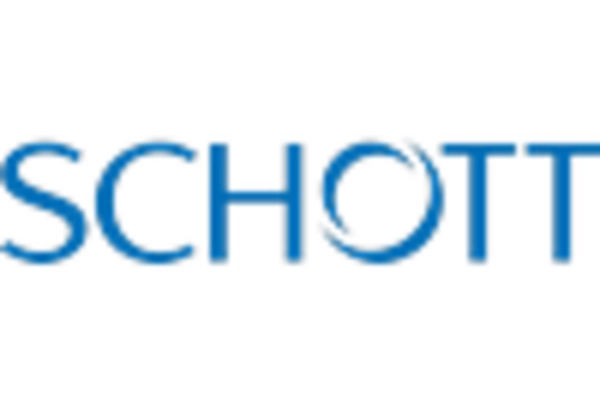Regulatory Support
Government regulations promoting energy efficiency and sustainable building practices are influencing the Prefabricated Glass Block Market. Many regions are implementing stricter building codes that favor the use of energy-efficient materials, including prefabricated glass blocks. This regulatory support is likely to encourage builders to adopt these materials, as compliance with new standards becomes essential. Market data indicates that regions with robust regulatory frameworks are experiencing higher growth rates in the adoption of prefabricated glass solutions. Thus, the alignment of government policies with market trends may significantly bolster the Prefabricated Glass Block Market in the coming years.
Rising Urbanization
The trend of rising urbanization is a significant driver for the Prefabricated Glass Block Market. As urban areas expand, the demand for innovative building solutions that maximize space and enhance aesthetics is increasing. Prefabricated glass blocks offer a practical solution for urban developers looking to create visually appealing structures while optimizing limited space. Market projections indicate that urbanization will continue to drive construction activities, leading to a heightened demand for prefabricated materials. Consequently, the Prefabricated Glass Block Market is poised to benefit from this urban growth, as more projects seek to incorporate these versatile building elements.
Architectural Aesthetics
The aesthetic appeal of prefabricated glass blocks is becoming a crucial factor in the Prefabricated Glass Block Market. Architects and designers are increasingly incorporating these blocks into modern designs, as they offer a unique blend of transparency and light diffusion. This versatility allows for creative applications in both residential and commercial projects. The market data indicates that the demand for visually appealing building materials is on the rise, with prefabricated glass blocks being favored for their ability to enhance architectural beauty. Consequently, this trend may drive the growth of the Prefabricated Glass Block Market as more projects seek to combine functionality with striking design.
Technological Innovations
Technological advancements in manufacturing processes are likely to propel the Prefabricated Glass Block Market forward. Innovations such as improved production techniques and enhanced material properties are making prefabricated glass blocks more accessible and cost-effective. The integration of smart technologies, such as energy-efficient coatings and self-cleaning surfaces, is also gaining traction. Market analysis suggests that these technological improvements could lead to increased adoption rates among builders and developers. As the construction industry embraces these innovations, the Prefabricated Glass Block Market may witness a surge in demand, driven by the need for modern, efficient building solutions.
Sustainability Initiatives
The increasing emphasis on sustainability within the construction sector appears to be a pivotal driver for the Prefabricated Glass Block Market. As environmental concerns gain traction, builders and architects are increasingly seeking materials that minimize ecological footprints. Prefabricated glass blocks, known for their energy efficiency and recyclability, align well with these sustainability initiatives. The market for green building materials is projected to reach substantial figures, with prefabricated glass blocks likely to capture a significant share due to their eco-friendly attributes. This trend suggests that the Prefabricated Glass Block Market may experience growth as more stakeholders prioritize sustainable construction practices.


